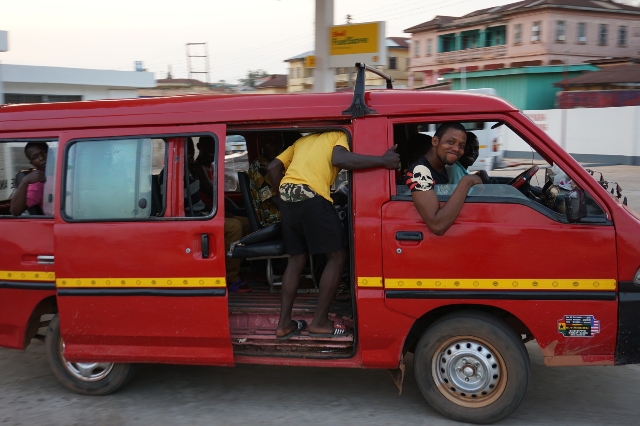By:brightwebtv.com /nana asare barimah

Commercial buses have decided to reduce the number of passengers they carry per row, by one from tomorrow, Thursday, 26 March as part of efforts to ensure social distancing in the fight against the coronavirus outbreak.
This means buses that carry three on normal days will now carry two per row while those who take four per row will do three.
The Ghana Private Road Transport Union is, however, calling on the government to reduce fuel prices for commercial drivers to enable them continue with the new policy until normal times return.
Since Ghana recorded cases of the pandemic, there have been calls for sweeping reforms in various sectors of the country’s economy.
Prominent among the calls is the reduction of the number of passengers that commercial buses (trotro) carry per row in order to observe the social distancing policy in public vehicles.
President Nana Akufo-Addo, thus, on Tuesday, 24 March 2020, met transport operators and owners to find ways by which they can modify the existing public transport policy.
Speaking to Class News, the Industrial Relations Officer of the Greater Accra branch of the GPRTU, Mr Abass Ibrahim Moro, said the number of passengers can be reduced if the government will put in place measures to assist drivers and transport owners.
He said: “We are worried about the coronavirus and the way we load our vehicles – shoulder-by-shoulder – and we’ve come out with a suggestion that the government should see what it can do [to help us].
“On our own, we’ve asked our drivers to effective from tomorrow [Thursday, 26 March], the three sitting capacity should be reduced to two while the four sitting capacity should be reduced to three.”
Mr Abass, however, explained that if this is done without any compensation from the government, the drivers will stop working and there will be no cars available on the streets to transport Ghanaians.
“So, we are saying the government should see if there could be a coupon so that the fuel could be reduced so that we can meet the working demands,” he added.
Source: class
 The Spot Of Latest Trending News And Leaks Log On For Latest Political News, Health Related Issues And More
The Spot Of Latest Trending News And Leaks Log On For Latest Political News, Health Related Issues And More







